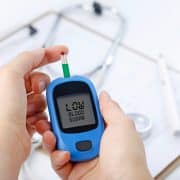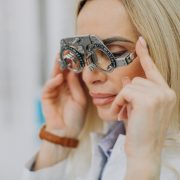How Does Diabetes Affect Your Eyes?
If you have diabetes, you’re probably already making the lifestyle changes suggested by your family doctor or endocrinologist. You may be watching what you eat, getting more exercise, or taking medication to help you manage your blood sugar levels. These are all effective strategies for dealing with your disorder. However, it’s important to pay special attention to your eyes and vision, especially if you’ve been diagnosed with diabetes. Regular visits to your eye doctor in Coldwater, MS, can help.
How Can Diabetes Affect My Eyes?
Uncontrolled diabetes can lead to several eye disorders, including:
- Diabetic retinopathy: Abnormal blood vessels grow beneath the retina.
- Glaucoma: Too much pressure forms inside the eye.
- Macular Edema: Part of the retina, the macula, begins to swell.
- Cataracts: A cloudy film forms over the surface of the eye’s lens.
While some of these can be effectively treated to prevent further damage, vision that has been lost usually can’t be restored. For this reason, it’s important to make regular appointments with your eye doctor if you’ve received a diabetes diagnosis.
How Can My Eye Doctor Help?
Your eye doctor can perform regular vision screenings to check for signs of problems, such as glaucoma or cataracts. By catching symptoms early, they may be able to devise strategies to help you avoid permanent vision loss. Some of the tests your eye doctor may perform include:
- Dilated eye exam
- Visual acuity test
- Tonometry
- Opthalmoscopy
- Angiography
- Optical Coherence Tomography
Your vision specialist will explain each test as they perform it, and they can usually let you know your results right away. All are painless and non-invasive methods of discerning what’s happening inside your eyes. And all may be instrumental in preserving your vision.
Diabetes-Related Eye Care in Coldwater, MS
If you need special care for diabetes-related eye conditions in Coldwater, MS, Coldwater Vision Center is waiting to help. Through routine screenings, treatment, and maintenance, we can assist you in managing diabetic eye conditions that threaten the health of your vision. Call today to schedule a convenient time to come in and talk with one of our friendly and experienced professionals.




